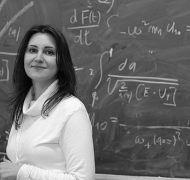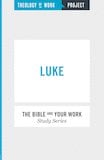Living and Dying By Degrees: The Pursuit of Higher Ed
Blog / Produced by The High Calling
I started college because everybody did. I finished college because my father did not; it was a way for me to prove I was my own man. Neither of these motivations carried sufficient merit. However, I ended up with a degree, which opened more doors than I could have imagined. In fact, nothing in my professional life over the past 20 years would have been possible without crossing that singular finish line.
I tried for more a few times; three, actually. But I had discovered my loves so I pressed on without adding further credentials to my CV.
One question eludes me, though: What could I have accomplished had I completed a Master’s, or pursued a Doctorate?
*****
Curious, and thinking about influence this month at the Young Professionals channel (YP), I decided to ask one of the most formally educated people I know about the subject: Dr. David Naugle. David, Chair and Distinguished Professor of Philosophy at Dallas Baptist University (DBU), has two doctorates, with concentrations in systematic and biblical theology, philosophy, and English literature.
David knows school.
When I asked how education has added to his influence at work, he said, "As a university professor, you have immediate respect and power (I grade their papers!), but to be able to say I was pursuing a doctorate gave me additional respect and power and influence with students. They believed I knew what I was talking about."
I think of the times when friends make similar announcements regarding academic pursuits. It’s almost always followed by a compliment from the listener, who is impressed. I, on the other hand, feel inadequate, or jealous, or both. What gives? I wonder. David says, "Pride."
He’s probably right. Still, getting left behind is becoming more of a reality every year. According to the National Center for Education Statistics, "The number of Doctor’s degrees increased 34 percent between 1996-97 and 2009-10; and is projected to increase 24 percent between 2009-10 and 2021-22." And as for Master’s—so accessible to me (three times!)—they show 63 percent and 34 percent actual and projected growth, respectively.
"We must keep a kingdom of God perspective in all this, Sam. Despite what the modern work place may demand, God’s kingdom operates according to different premises and principles. His glory, leadings, and vocational callings must be the determining factors which, if fulfilled, would lead to influence."
Oh, yes, I remember. We’re talking about influence, not the Joneses. Speaking of idolatry, I had to ask what David has encountered in his own quest for more education.
"The god of pride rears its ugly head on occasion with two Ph.D.’s," he confessed. "Pride is a disordered love for self and it’s an occupational hazard regardless of the occupation. Knowledge (and degrees) can puff up, but love edifies (1 Corinthians 8:1-3)! As Howard Hendricks used to say, we can die by degrees. I must always be on guard."
"How can young professionals temper these gods?" I asked.
"Pray for humility. And be honest about what you don’t know. As I admit to students, all I have to do is walk onto the first floor of the relatively small DBU library to realize how much I do not know. Hence, the humility."
I wondered if David had ever met a young professional who really needed to go back to school.
"Yes, especially since college is the new high school, and a college degree doesn’t get you as far (occupationally speaking) as it once did. Though, where you get your M.A. or Ph.D. is a factor in many situations. Someone says, ‘I have a Ph.D. from Harvard,’ and another (me) says, ‘I have a Ph.D. from UT-Arlington.’ The first turns heads and hearts; the second typically doesn’t."
"David," I continued, mostly hypothetically, "imagine I’m 27, five years out of college, in a serious relationship, and paying off school loans through a decent job. I’m considering a Master’s. What questions should be at the top of my discernment list?" He limited himself to five:
- "Is this education necessary to fulfill my sense of calling from God? Is this God’s leading in my life?
- What are my most basic motives? Are they godly or selfish?
- Is the decision to go back to school a wise one financially?
- Is the timing right?
- How would the pursuit of a Master’s affect my family in the present and future?"
School or no school, advanced degree or high school diploma, department chair or fry guy, Jesus told the story of the Good Samaritan and then said, "Go and do likewise." This sentiment flatlines the socio-academic-economic order and calls each of us to the same task. We are—all of us—called to "go and do likewise" in every area of life.
But if I were to pursue more schooling, I’ll try to remember David’s wisdom, which comes not as much from education as it does from experience:
"We can ‘go and do likewise’ as we realize we are learning for others."
A motivation with merit. My thanks to David Naugle, whose influence on young people is exceeded only by their love and respect for him.
*****
For more on influence, read our YP interview with IVPress editor Dave Zimmerman, here.
David Naugle is a YP coach for The High Calling, and the author of Reordered Love, Reordered Lives: Learning the Deep Meaning of Happiness. Interview by Sam Van Eman, YP editor and narrator of A Beautiful Trench It Was.





